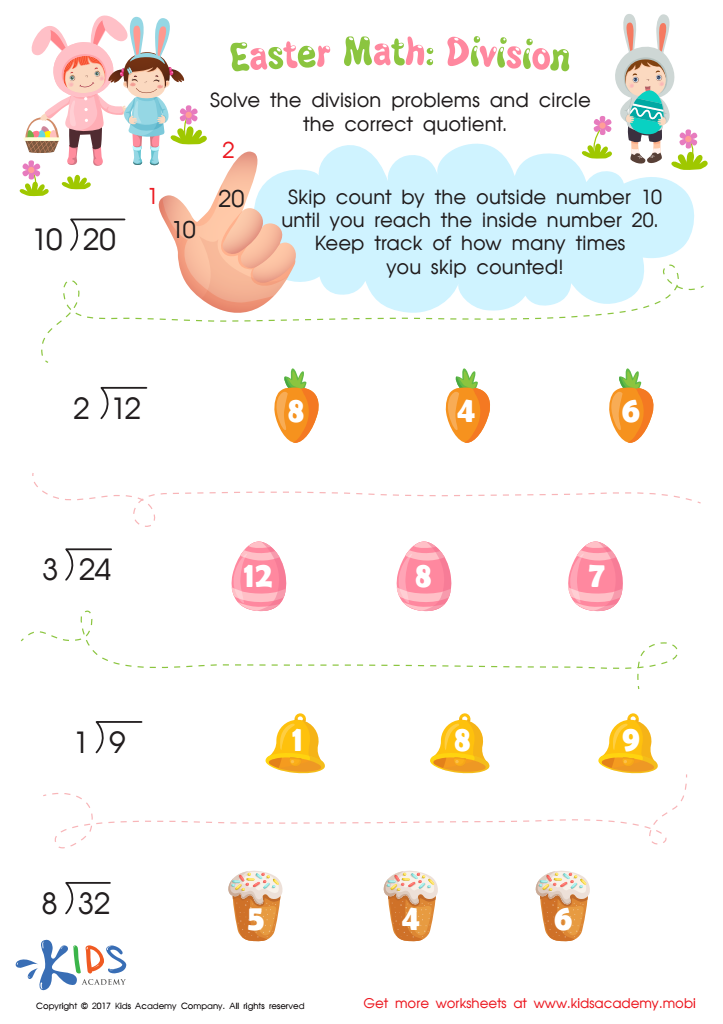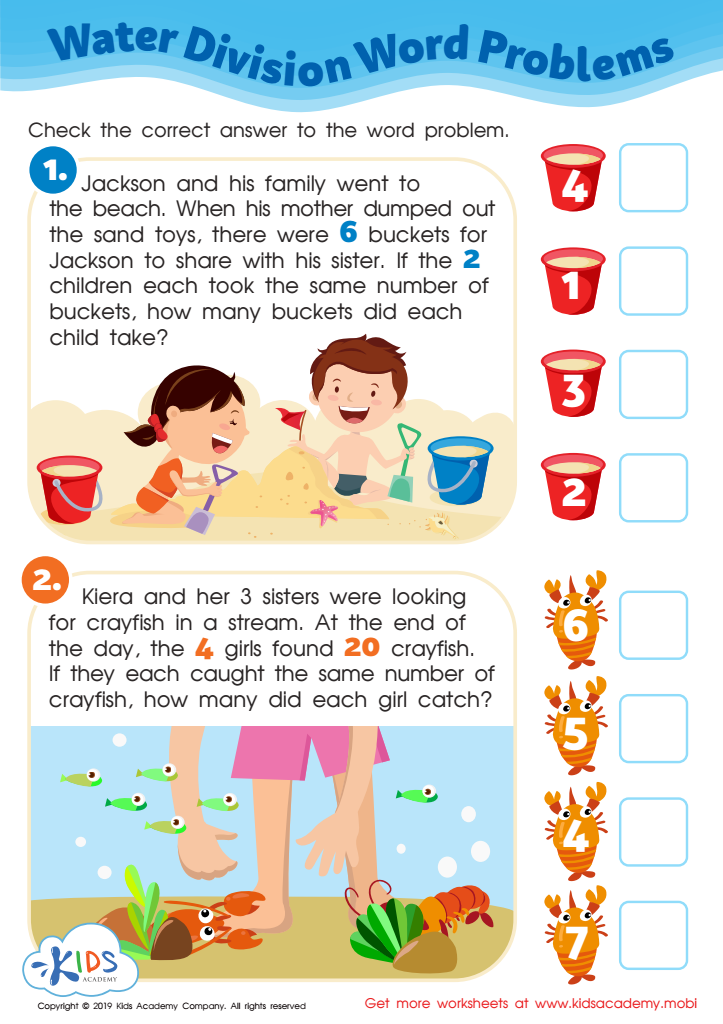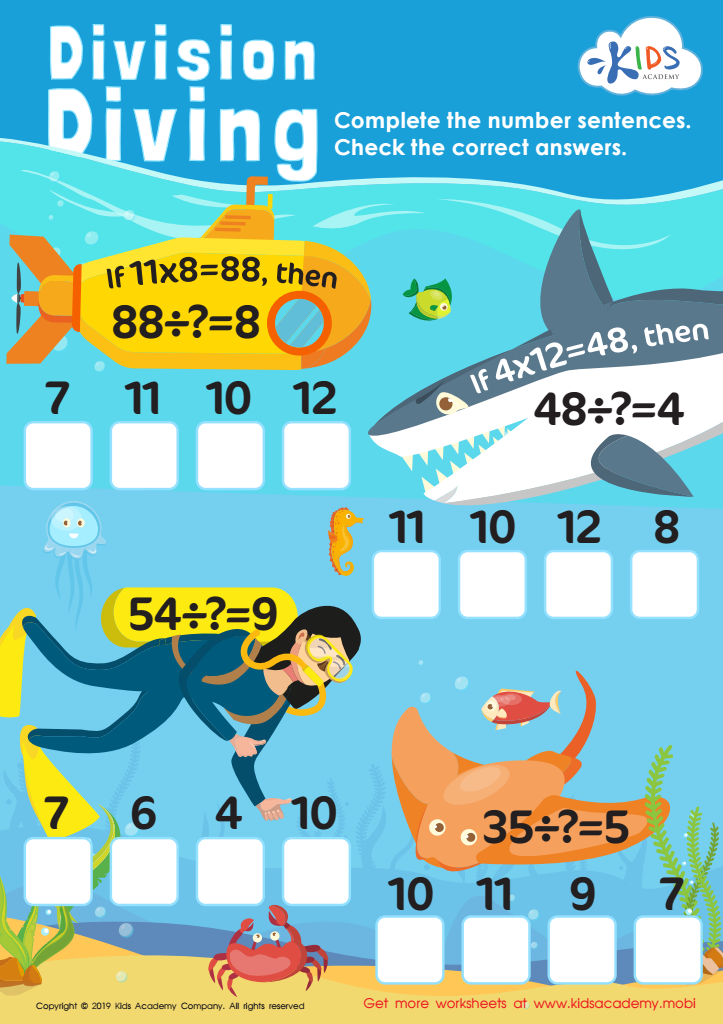Mathematical reasoning Normal Division Worksheets for Ages 5-8
3 filtered results
-
From - To
Discover our engaging Mathematical Reasoning Normal Division Worksheets designed for children aged 5-8! These worksheets provide a fun and interactive way for young learners to master division concepts while enhancing their critical thinking and problem-solving skills. Each worksheet is thoughtfully designed to encourage students to analyze, integrate, and apply their mathematical knowledge in different scenarios. With colorful illustrations and age-appropriate exercises, these resources foster a positive learning environment. Perfect for classroom use or at-home practice, our division worksheets help build strong foundational skills that set the stage for more advanced math. Start your child's journey to mathematical confidence today!


Division Worksheet


Water Division Word Problems Worksheet


Division Diving Worksheet
Mathematical reasoning and normal division are foundational concepts for students aged 5-8, making parental and teacher engagement crucial. At this age, children are developing critical thinking skills and the ability to solve problems. Understanding division not only helps them grasp fundamental mathematical operations but also cultivates their reasoning abilities, enabling them to approach complex problems in life.
Moreover, division introduces children to concepts of sharing and equality, which are significant in their social interactions and everyday activities. For example, when they divide snacks among friends, they practice real-life applications of division, making the learning experience relevant and engaging.
Encouraging mathematical reasoning during these early years supports cognitive development. Children learn to analyze situations, draw conclusions, and justify their thinking, skills that transcend mathematics and are applicable across disciplines.
Additionally, cultivating a strong mathematical foundation during ages 5-8 fosters confidence and a positive attitude toward learning. When children understand division and can reason through mathematical problems, they become more resilient in tackling challenges and less anxious about future mathematical learning, setting the stage for success in higher mathematics as they progress in their education.
 Assign to My Students
Assign to My Students
















